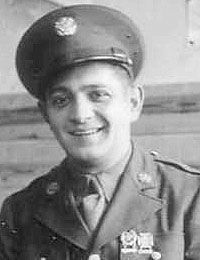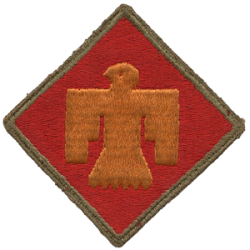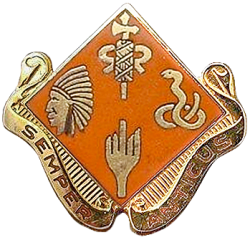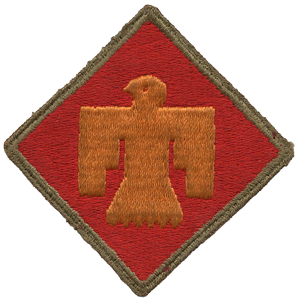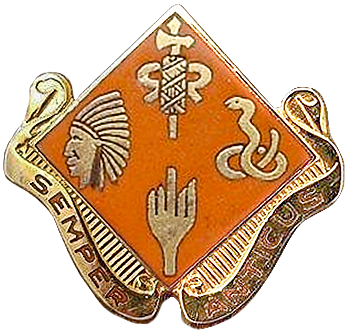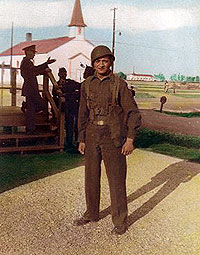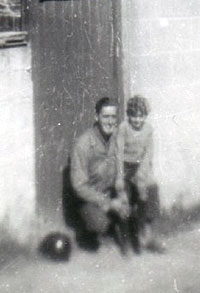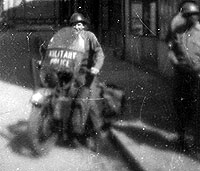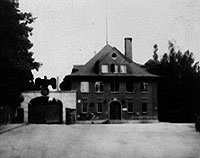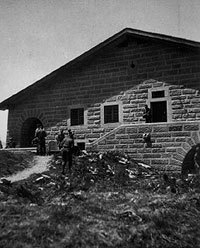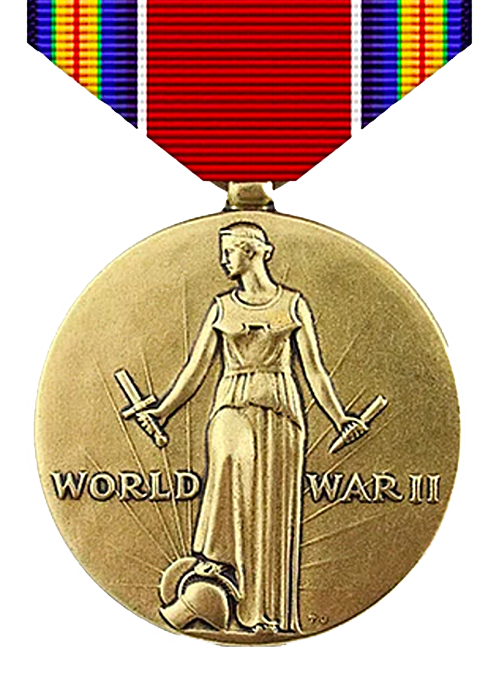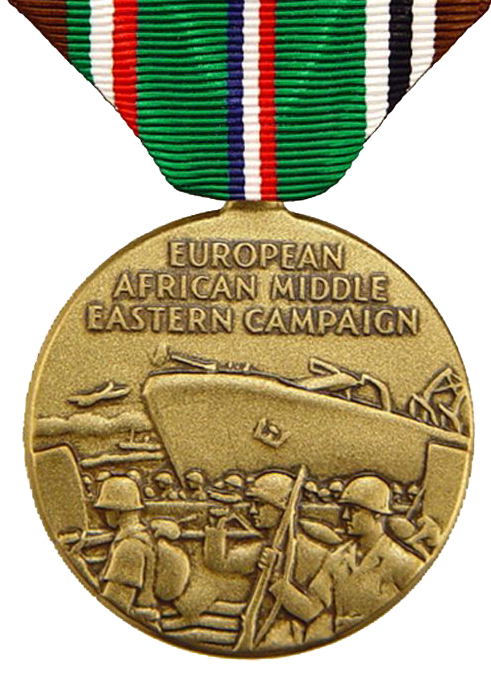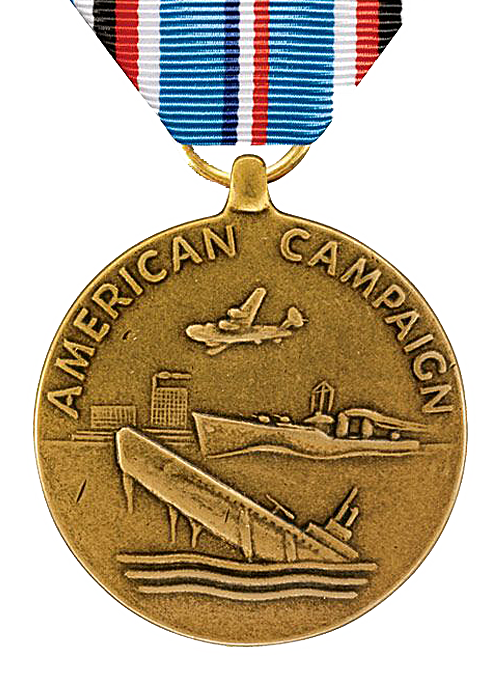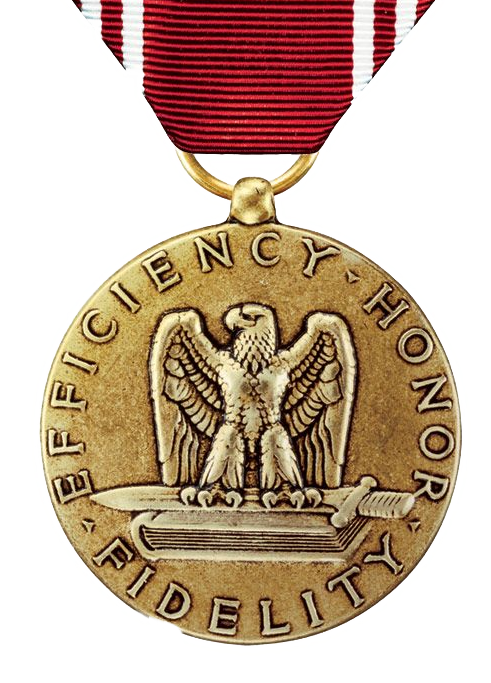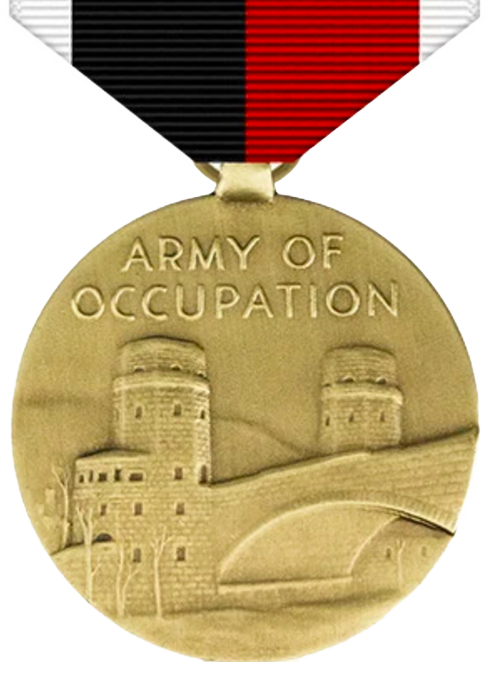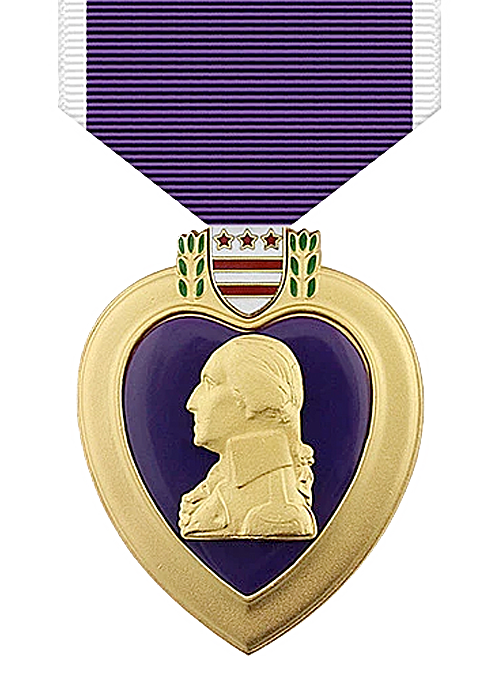My late father, Felix A. Cizewski, was born in Chicago, Illinois in 1918. He was drafted in 1942 and was sent to Glasgow, Scotland in February, 1944. He got assigned to the Open Wire Repair Section, Company C, 3110th Signal Service Battalion, Army Service Forces and was sent to Normandy after the initial landings. In the Open Wire Repair Section Felix had to construct and maintain poles and wires. He suffered severe frostbite to his hands and feet while performing that service. After Normandy, he was transferred to the 45th Signal Company, 45th Infantry Division where he served for the rest of the war.
In the winter, Felix suffered severe frost bite on his hands and feet and was hospitalized. He may also have had "trench foot," a common cold injury among the troops caused by long periods of cold, wet feet. Felix said that the American doctors told him that they would most likely have to amputate have his hands and feet. However, night after night, after the American doctors had gone, a captured German doctor working in the American hospital massaged Felix's hands and feet with a special salve. Eventually Dad healed enough to avoid amputations and return to duty.
April 29, 1945 Liberation of Dachau
The 45th Infantry Division is recognized as a liberating unit of Dachau by the United States Holocaust Memorial Museum and the U. S. Army Center of Military History.
On April 29, 1945, the 3rd Battalion, 157th Infantry Regiment of the 45th Division were among the liberators of Dachau. No more than 50 SS soldiers were killed by members of the 157th Infantry Regiment, 45th Infantry. On the first day of liberation to 50, SS soldiers and SS collaborators were killed by inmates with additional killings occurring later. The rest of the SS soldiers were captured and made POWS.
Felix may have been in the 45th Signal Company at that time. While none of the reports of the initial liberation mention the presence of the 45th Signal Company, it would have been just behind the liberators and moving forward, arriving shortly after liberation. The first photos were taken by by T/4 Arland B. Musser, 163rd Signal Photographic Company, Seventh Army.
"Immediately after Dachau's liberation, U.S. Army authorities and other Allied representatives began treating the sick prisoners, implementing health and sanitary measures to curb the typhus epidemic, and bringing in tons of food to feed the starving prisoners. The local townspeople were brought in to give the dead prisoners a proper burial." From United States Holocaust Memorial Museum, Holocaust Encyclopedia's entry The 45th Infantry Division.
Felix would have had the opportunity to visit Dachau. As he was fluent in Polish, he would have been able to converse with inmates. The 45th Division was stationed on occupation duty in Munich area near Dachau from May until late July, 1945. After VE Day, May 8, 1945: General Patton became military governor of Bavaria, which included Dachau and the 45th Division, and ordered that no charges be brought against the GIs involved in the execution of guards
Felix never spoke of Dachau before his death in 2004. Dachau meant something to him as he kept a copy of the 45th Division News with the report of the liberation and a photo of the gate to the SS camp.
Thanks to Felix's son, Leonard H. Cizewski for the story and pictures.
